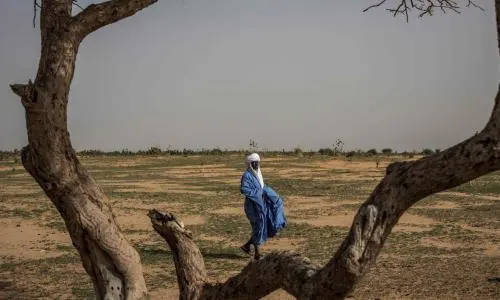
An analysis has revealed that the recent unprecedented heatwave in the Sahel region of Africa, particularly in Mali, was caused by human-induced climate disruption. Mali recorded its hottest day ever on April 3rd, with temperatures soaring to 48.5°C in Kayes. This scorching heat persisted for over five days, leaving vulnerable populations with little time to recover.
In Bamako, the capital city, Gabriel-Touré Hospital reported 102 deaths in the first four days of April alone, nearly matching the total for the entire previous month. Many of the deceased were elderly individuals, and heat-related illnesses were rampant. Mortuaries in Bamako reached capacity, forcing families to keep deceased relatives at home.
Electricity shortages exacerbated the health impacts, leaving many without access to fans or air conditioning during the extreme heat. Moreover, the heatwave coincided with the end of Ramadan, when fasting Muslims abstain from food and water during daylight hours, potentially heightening susceptibility to heat-related ailments.
While the exact death toll remains uncertain due to limited data, it’s estimated that hundreds or possibly thousands of deaths were heat-related. According to the analysis by World Weather Attribution, climate breakdown intensified maximum temperatures in Mali and Burkina Faso by 1.5°C and nighttime temperatures by 2°C.
Without human influence on the climate, the heatwave would have been 1.5°C cooler. Kiswendsida Guigma, a climate scientist, emphasized the unprecedented nature of April’s temperatures in the Sahel, highlighting the life-threatening consequences of even slight increases in heat. Urgent action is needed from world leaders to mitigate the impacts of future heatwaves on vulnerable populations.
